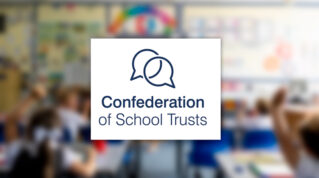The Sutton Trust publishes annual polling of teachers on the state of play of school finances. This year’s survey highlights major concerns across the board.
Against a backdrop of stagnant funding and rapidly rising costs, schools across England are struggling to balance the books. Our polling, conducted by the National Foundation for Educational Research as part of their Teacher Voice Omnibus Survey, shows the increasing extent to which school leaders are having to make cuts to important educational activities and essential staff.
The proportion of senior leaders reporting cuts in teaching staff (32 per cent), teaching assistants (69 per cent) and support staff (46 per cent) has grown since 2023. A staggering three-quarters of primary school headteachers say they’ve had to reduce the number of teaching assistants at their school, despite schools across the country seeing large increases in the number of pupils needing extra support.
In addition, we are seeing significant imbalances across the country. For example, schools in the north east are the most likely to have reduced teaching staff, at 45 per cent compared to between 16 and 36 per cent in other regions.
Looking at cuts to equipment and activities, half of schools have reduced spending on trips and outings and almost one-third (27 per cent) have reduced sports and other extra-curricular activities. These are the most widespread cuts reported since our polling began in 2017. Furthermore, 51 per cent say they have had to cut spending on IT equipment, with primary school leaders again being the most likely to report cuts in all these areas.
In an effort to cope with mounting funding pressures, school leaders are increasingly using pupil premium funding – which is clearly intended to support disadvantaged pupils – to plug gaps in their general budgets. The proportion of headteachers having to do this has reached 50 per cent in primary schools and is 47 per cent across the board, up from 42 per cent and 41 per cent respectively last year. Again, these are the highest levels we’ve seen in this survey.
Leaders must put their money where their mouths are
The polling results highlight an overall picture of underfunding and managed decline in the school system. And it come at a time when gaps in attainment between the most and least disadvantaged pupils are at their widest in more than a decade, and when persistent absence from school is soaring.
The reality of these spending cuts is that children needing extra support in the classroom will not receive it, the poorest children will be going without the help they need to reach their potential, and activities that enrich all children’s learning and build life skills are being sacrificed.
Even in a challenging economic climate, it is a political choice to sit by and allow this to happen. In my view, it’s a choice that is incredibly short-sighted.
The Prime Minister has called education a ‘silver bullet’ and ‘one of the biggest levers we have to change the direction of our country’. He made a commitment at the last Conservative Party conference that education would be his main funding priority at all future spending reviews. This rhetoric is simply not grounded in reality.
It is undoubtedly disadvantaged children who will be impacted most by these school cuts. Not only is this grossly unfair, but it also results in a waste of talent which our country can ill afford.
We must make education a genuine national priority. Schools clearly need an uplift in funding across the board. But beyond this we also urgently need a national strategy to close the attainment gap.
This includes a fully-funded tutoring programme targeted to disadvantaged pupils, measures to tackle the teacher recruitment and retention crisis, reforms to the national funding formula to ensure schools facing the highest needs have adequate funding, and the restoration of pupil premium funding to previous levels in real terms.
Rishi Sunak is right that education has the power to change the direction of our country. It will do this by improving the opportunities and life chances of all children, regardless of their background. And to achieve that, political leaders must put their money where their mouths are and commit to the investment that the school system is crying out for.








It seems that the funding crisis in our schools is being engineered so there is pressure on schools to join MATs.
Never mind the quality of education and standards and progress which is first and foremost as stated in the Academies Financial Handbook.
Academies are run like businesses though they are not businesses.
First and foremost it is the quality of education!!!
Good schools should be at the centre point of any group of schools in similar areas to be the best.
Maybe it is these schools that should be the nucleus for MAT growth which is reasonable geographically and headteachers sharing the same challenges in similar areas.
More motivation o work together!!!